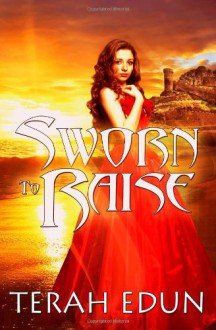

The first thing that excited me was the description of the main character, Ciardis. She is described as having darker skin with curly dark brown hair and golden eyes. To me, she sounds either non-white or of a mixed ethnicity, which is the first I have ever seen in young adult book.
I also appreciated that it took her much longer to learn how to do everything. As a person who struggles with coordination and knows how long it can take to learn a new dance or ride a horse, I can safely say that the timeline for this is pretty accurate.
In a similar vein, I appreciated the lack of the "remove something little and she's beautiful" trope. It was described repeatedly that Ciardis' mentor, Lady Serena, was disgusted by her lack of hygiene and how intensely her skin would have to be taken care of, to say the least.
The only thing I didn't like was that this could have used a read over for someone to check the spelling. It generally was good enough and the few spelling errors that did come up were mostly easily overlooked by the good story within.

I enjoyed reading this. It was pretty clear he did his research, especially when he was citing anthropological academic literature. I would have liked if he had continued using more academic papers because some of his statements seemed to require some major academic backing.
Reading about his culinary successes and blunders were quite enjoyable and made me realize my mistakes in cooking aren't so bad after all.

I was interested in the level of technical detail that went into it and the attention to detail the author had with respect to looking at who played what and the edits done in the mixing.
I also found the social issues surrounding the tensions of the Beatles to be fascinating from an exclusively recording standpoint.
The only real problem as I had was the author's penchant for the use of exclamation points. It's really distracting and appears almost every other sentence in some places. Even worse, some of the information was not worthy in my opinion of having an exclamation point in place of a period.

I was surprised at how much I learned. I initially thought I would just be reading about a bunch of uncivilized bands of people. It turns out that our stereotypes of non-Roman groups have largely been the result of Roman propaganda.
Jones clearly did a lot of research on this book, and I was amazed at the amount of detail given. For example, I had no idea that the Celts were better at metal working than the Romans and that the Huns were from Hungary.
In short, I was highly impressed at his work and hope to read more of his work. Clearly in addition to his well documented sense of humor Jones is also a scholar of reasonable caliber.